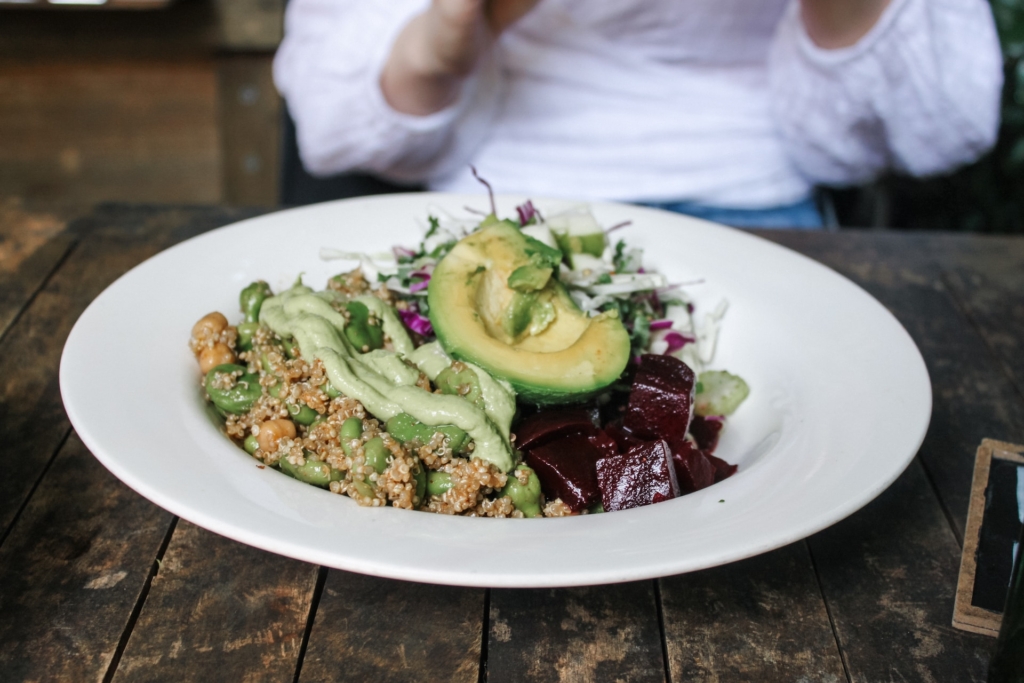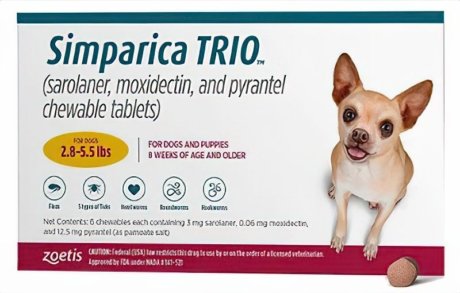Can Dogs Eat Avocado | 10 Benefits, Health Issues, Risks
Avocados have recently become a trendy superfood, and many people feel they are a beneficial addition to their diets. You might be tempted to share some of this delicious fruit with your pet if you own one. You may be wondering if it is okay for dogs to eat avocados.

In this article, we’ll look at whether dogs can eat avocados and discuss some of the risks and concerns that come with doing so. We’ll also offer some healthy alternative snacks for dogs and stress the significance of giving dogs a balanced and nutritious diet that suits their individual nutritional demands.
The Nutritional Value of Avocados
Avocados are recognised for their high nutritional density and are high in healthy fats, potassium, fibre, and vitamins including C, E, and K. These nutrients may be useful to people, but dogs have different nutritional needs than humans, and not all human foods are acceptable to provide to dogs.
While avocados are a nutritious diet for humans, they may not be as beneficial to dogs. Avocados’ high-fat food may cause digestive issues in dogs, especially if they are overweight or have a history of pancreatitis.
Can Dogs Eat Avocado Oil
Avocado oil is generally safe for dogs in small amounts. It can provide some health benefits due to its monounsaturated fats and antioxidants. However, it’s important to use it in moderation and avoid any avocado oil products that contain added ingredients or seasonings that could be harmful to dogs. As always, it’s recommended to consult with your veterinarian before introducing new foods to your dog’s diet.
Can Dogs Eat Avocado Skin
It isn’t recommended to feed avocado skin to dogs. The skin is thick and difficult to digest, which can cause gastrointestinal obstructions or pain. Avocado skin also contains persin, which is poisonous to dogs. To keep your dog safe, peel the avocado before serving it to them.

How Much Avocado Can A Dog Eat
Avocado should be fed to dogs in moderation. While it can be a healthy addition to their diet due to its healthy fats and nutrients, it is also calorie-dense. As a general guideline, you can offer small amounts of mashed avocado as an occasional treat or mix it with their regular food. However, it’s important not to overfeed avocado to prevent any digestive issues or excessive calorie intake.
Can Dogs Eat Avocado Meat

Yes, dogs can eat avocado meat in small amounts. The creamy flesh of avocado is safe for most dogs and can provide them with healthy fats and nutrients. However, it’s important to feed avocado in moderation due to its high fat amount. Additionally, always remove the avocado pit and skin, as they can pose choking hazards or contain substances that are toxic to dogs.
The Potential Risks of Feeding Avocado to Dogs
The presence of persin, a chemical present in the leaves, bark, and seed of the avocado plant, is the most serious concern linked with feeding avocados to dogs. Persin is poisonous to dogs and can induce gastrointestinal issues including vomiting and diarrhoea.
However, it is essential to note that the flesh and skin of the avocado contain some persin, but in lesser concentrations than the other sections of the plant. Some dogs are more sensitive to persin than others and may have negative responses after eating avocados.

Aside from the possible toxicity of persin, avocados can be a choking danger for dogs, particularly if the pit is swallowed. The pit can produce an obstruction in the digestive tract, which can be dangerous and may need emergency surgery to remove.
Examples of How Avocado Can Affect Dogs
There have been instances of dogs eating avocados and developing gastrointestinal difficulties and other health concerns. A 1-year-old French Bulldog consumed an avocado and got severe vomiting and diarrhoea in one case. The dog recovered after many days of care, but the event highlighted the possible hazards of giving avocados to dogs.
Another example is a dog that consumed an avocado pit and had an intestinal obstruction. To get the pit removed and recuperate fully, the dog needed emergency surgery. These incidents highlight the possible risks and hazards of giving dogs avocados.
How to Know If Your Dog is Having a Bad Reaction to Avocado
If you suspect your dog has eaten avocado or is having a bad reaction to it, it’s important to monitor them closely for any signs of distress. Some common signs that your dog may be allergic or intolerant to avocado include:

- Vomiting and diarrhea
- Loss of appetite
- Lethargy and weakness
- Difficulty breathing
- Skin irritations, such as itching or redness
If you notice any of these symptoms, contact your veterinarian immediately for advice and treatment. In severe cases, your dog may require emergency medical attention.
Alternative Healthy Snacks for Dogs
While avocados may not be a suitable snack for dogs, there are plenty of other human foods that are safe and healthy for dogs to eat. Some examples of healthy snacks for dogs include:

- Carrots: These crunchy vegetables are low in calories and high in fiber and vitamins, making them a great snack for dogs.
- Apples: Apples are a good source of fiber and vitamin C, but make sure to remove the seeds and core, which can be a choking hazard.
- Peanut Butter: Dogs love peanut butter, and it’s a good source of protein and healthy fats. Just make sure to choose a peanut butter that doesn’t contain xylitol, a sweetener that can be toxic to dogs.
- Blueberries: These sweet little berries are packed with antioxidants and are low in calories, making them a great treat for dogs.
- Sweet Potatoes: Sweet potatoes are a good source of fiber and vitamins, and dogs love their sweet taste. Just make sure to cook them thoroughly and remove the skin.
Feeding Your Dog a Balanced and Nutritious Diet
While it may be tempting to give your pet some of your favourite human meals, it’s essential to keep in mind that dogs have different nutritional requirements than people. Dogs require a healthy diet that is well-balanced in terms of lipids, protein, and carbohydrates as well as in terms of vitamins and minerals.

You may supplement your dog’s diet with nutritious snacks and treats, like the ones indicated above, in addition to feeding them high-quality commercial dog food. Avoid giving your dog too many goodies, which can lead to obesity and other health issues, and make sure the snacks you purchase are suitable for the size and type of your dog.
Conclusion on Can Dogs Eat Avocado:
In conclusion, while avocados are a nutritious diet for humans, they may not be as beneficial to dogs. Avocados are a potentially risky food for dogs due to their high fat content and probable toxicity of persin.
Instead, pick healthy and nutritious dog-safe snacks and treats like carrots, apples, peanut butter, blueberries, and sweet potatoes. Remember to provide your dog a balanced, healthy meal that suits their individual nutritional demands.
If you have any worries regarding your dog’s food or health, get assistance from your veterinarian. You can help your dog live a long and healthy life by attending to their dietary needs.
Frequently Asked Questions on Can Dogs Eat Avocado:
-
Can dogs eat guacamole?
No, dogs should not eat guacamole. Guacamole contains avocado, which can be toxic to dogs due to the presence of persin. Additionally, guacamole often contains other ingredients that can be harmful to dogs, such as garlic and onion.
-
What should I do if my dog eats avocado?
If your dog has eaten avocado, monitor them for symptoms of illness such as vomiting, diarrhea, and lethargy. If you notice any concerning symptoms, contact your veterinarian immediately.
-
Are there any benefits to feeding my dog avocados?
While avocados are a healthy food for humans, they may not provide the same nutritional benefits for dogs. It’s best to stick to dog-specific foods and treats that are designed to meet your dog’s nutritional needs.
-
Can dogs eat avocado oil?
While avocado oil is generally considered safe for dogs in small amounts, it’s best to stick to oils that are specifically recommended for dogs, such as fish oil or coconut oil.
-
What are some healthy snacks for dogs?
There are many healthy snacks and treats that dogs can enjoy, including carrots, apples, peanut butter, blueberries, and sweet potatoes. Always make sure to choose snacks that are safe and appropriate for your dog’s size and breed.
-
What are the symptoms of avocado poisoning in dogs?
The symptoms of avocado poisoning in dogs can include vomiting, diarrhea, abdominal pain, loss of appetite, and difficulty breathing. In severe cases, avocado poisoning can lead to death.
-
Can small amounts of avocado be safe for dogs?
While small amounts of avocado may not be toxic to dogs, it’s generally best to avoid feeding them any avocado at all due to the potential risks associated with persin and the high fat content of the fruit.
-
What should I do if my dog eats the skin or pit of an avocado?
If your dog has eaten the skin or pit of an avocado, monitor them for symptoms of illness such as vomiting, diarrhea, and abdominal pain. If you notice any concerning symptoms, contact your veterinarian immediately.
-
Can avocados be harmful to other pets, such as cats?
While avocados are primarily known for being toxic to dogs, they can also be harmful to other pets such as cats and birds. It’s best to avoid feeding avocados to any pets, regardless of their species.
-
Are there any alternatives to avocados that are safe for dogs?
Yes, there are many healthy alternatives to avocados that are safe for dogs, including pumpkin, green beans, carrots, and apples. Always make sure to choose snacks and treats that are safe and appropriate for your dog’s size and breed.
Recommended related to Can Dogs Eat Avocado:





























